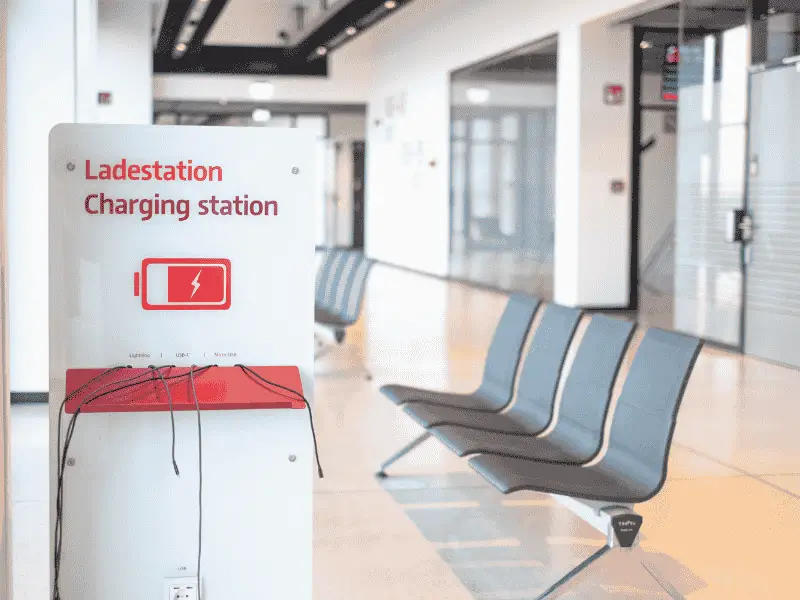Italian authorities have issued urgent warnings about increasingly sophisticated scam networks targeting international visitors across the country’s major tourist destinations. The schemes, ranging from elaborate street performances to high-tech payment fraud, have resulted in substantial financial losses for travelers in Rome, Florence, and Milan.

Recent investigations reveal a troubling evolution in tourist-targeted crime, with criminals increasingly leveraging technology to deceive visitors. Law enforcement officials have uncovered numerous cases of compromised payment systems, particularly in popular tourist areas. Criminals have installed sophisticated skimming devices on ATMs near major attractions, while restaurants and shops have reported incidents of tampered payment terminals.
Security experts note that tourists face particular vulnerability when using public Wi-Fi networks or unfamiliar payment systems. The combination of jet lag, unfamiliarity with local currency, and the excitement of travel creates perfect conditions for technological exploitation.
Beware of Rigged ATMs
Recent police reports from Rome highlight the growing sophistication of ATM skimming operations targeting tourist areas. Criminal networks have developed remarkably advanced skimming devices, nearly invisible to the untrained eye, capable of capturing both card data and PIN codes from unsuspecting visitors at popular tourist locations.
Law enforcement officials have documented over 200 cases in the past month alone, with losses averaging €2,000 per victim. The devices, often installed overnight, can capture hundreds of card details before being retrieved by the criminals, who typically operate in small teams of two to three people maintaining multiple compromised machines throughout major cities.
Payment Terminal Tampering
In a disturbing trend sweeping through tourist districts, sophisticated criminals are modifying payment terminals in shops and restaurants. These modified devices transmit card details to nearby receivers, allowing criminals to create perfect copies of tourists’ credit cards while the original cards never leave their owners’ sight.
The Italian Financial Police have identified several organized groups specializing in this type of fraud, with operations extending from high-end boutiques to small souvenir shops. The criminals typically target businesses with high tourist traffic, where staff turnover is frequent and supervision may be less stringent.
Public WiFi Exploitation
Cybersecurity experts have uncovered an alarming increase in attacks targeting tourists through compromised public WiFi networks. Criminals set up legitimate-looking networks in cafes and public squares, often mimicking official city or business networks to intercept personal and financial information from connected devices.
Recent investigations revealed that a single compromised network in Florence’s historic center captured login credentials from over 500 tourists in just one week. The sophisticated operation allowed criminals to access victims’ online banking and email accounts, leading to substantial financial losses and identity theft cases.
Digital Documentation Scams
A new wave of tech-savvy criminals is approaching tourists with tablets and smartphones, claiming to conduct official surveys or market research. These seemingly legitimate operations, complete with professional-looking digital forms and official-looking credentials, serve as elaborate covers for theft and data collection.
Police in Milan report that these operations typically involve teams of three to four individuals, with one person conducting the survey while others observe and select targets based on visible valuables or expensive clothing. The collected personal information is often sold on dark web marketplaces, leading to identity theft months after the tourists return home.
The Ring Scam
In what appears to be a simple but effective scheme, criminals across Italian cities are perfecting the art of the “found ring” scam. Perpetrators strategically drop fake gold rings in front of tourists, then claim to have just found them, offering to sell these supposedly valuable items at a fraction of their “worth.”
Investigations reveal that these operations are far more organized than they appear, with teams of scammers working in shifts and targeting specific areas known for wealthy tourists. The rings, purchased in bulk from underground manufacturers, cost less than a euro to produce but are often sold to victims for hundreds of euros.
The Friendship Bracelet Trap
Street vendors operating near major tourist attractions have developed an aggressive new approach to the traditional bracelet scam. These criminals rapidly create friendship bracelets directly on tourists’ wrists, often beginning the process before obtaining consent, then demand payment while accomplices work the crowd.
Tourism police report that these operations have become increasingly sophisticated, with vendors working in coordinated teams that can quickly mobilize or disperse based on police presence. The bracelets serve not only as a means of extracting money but also as a distraction technique for pickpocketing operations.
The Designer Jacket
A sophisticated scheme involving fake designer goods has emerged in major European cities, where well-dressed individuals pose as fashion industry professionals. These scammers approach tourists with stories about nearby fashion shows or photo shoots, offering seemingly high-end leather jackets at special prices.
Law enforcement has tracked several organized groups operating this scam, with losses reported in excess of €100,000 per month. The operation typically involves multiple actors, including lookouts and getaway drivers, all working together to create a convincing scenario that separates tourists from their cash.
Coordinated Street Performance Schemes
Criminal networks have elevated the art of distraction to new heights, orchestrating elaborate street performances designed specifically to facilitate theft. These operations involve multiple performers, lookouts, and pickpockets working in precise coordination near major tourist attractions.
Recent police surveillance has documented groups of up to ten individuals working together, with performances timed to coincide with peak tourist hours. The shows are specifically choreographed to create predictable crowd movements, allowing pickpockets to target victims with remarkable efficiency.
Fake Police Operations
One of the most alarming trends involves criminals impersonating law enforcement officials, complete with fake badges and convincing uniforms. These imposters typically approach tourists claiming to be conducting currency checks or drug investigations, using their apparent authority to gain access to victims’ wallets and belongings.
Authorities have identified several organized groups specializing in this deception, with some operations extending across multiple European countries. The criminals often work in pairs, presenting professional-looking identification and maintaining elaborate backstories that can withstand initial questioning from suspicious targets.
Hotel Inspector Infiltration
A sophisticated scheme targeting hotel guests involves criminals posing as hotel inspectors or maintenance staff. These imposters, often working in pairs, gain access to tourist rooms under the guise of routine inspections or technical checks.
Hotel security reports show these operations are typically well-researched, with criminals knowing specific hotel protocols and terminology. While one “inspector” distracts the guest with questions or paperwork, an accomplice quickly searches the room for valuables, focusing on passports, jewelry, and electronic devices.
Unauthorized Taxi Operations
Organized criminal networks have established elaborate fake taxi services targeting major transportation hubs. These operations extend beyond simple overcharging, involving multiple participants who coordinate to intercept tourists before they can reach legitimate transportation options.
Recent investigations have uncovered sophisticated networks operating at major airports and train stations, with fake dispatchers, professional-looking signage, and multiple vehicles working in coordination. These operations often employ technology to process credit card payments, lending an air of legitimacy to their schemes.
Coordinated Baggage Theft
Criminal groups have developed complex operations targeting tourist luggage at transportation hubs. These schemes involve teams of thieves who coordinate through digital communications, creating distractions while accomplices disappear with unattended bags.
Police surveillance has revealed that these groups often employ multiple tactics, including fake customer service representatives offering assistance with luggage or creating artificial crowds around luggage carousel areas. The operations are timed to coincide with the arrival of flights from wealthy nations, maximizing potential returns.
Dynamic Pricing Manipulation
Sophisticated restaurant operations have implemented technical solutions to overcharge tourists, using digital menus that display different prices based on the customer’s perceived nationality or language preference. These systems often operate through tablet-based menus that automatically adjust prices when shown to foreign visitors.
Consumer protection agencies have documented numerous cases where establishments maintain multiple pricing structures, with some charging tourists up to 300% more than local customers. The schemes often involve complex software systems that can quickly switch between different price lists based on various triggers.
Change Manipulation Schemes
A new generation of sophisticated change-counting schemes has emerged in tourist areas, involving carefully choreographed interactions designed to confuse and defraud visitors. These operations often involve multiple staff members working in coordination, each playing a specific role in the deception.
Financial crime units have identified several organized groups specializing in this type of fraud, with some operations extending across multiple establishments. The schemes often involve complex sleight-of-hand techniques and psychological manipulation, taking advantage of tourists’ unfamiliarity with local currency.
Fake Booking Platforms
Cybercriminals have developed sophisticated fake accommodation booking platforms that perfectly mimic legitimate services. These operations involve professional web design, seemingly secure payment systems, and convincing customer service interactions.
Recent investigations have uncovered networks operating multiple fake booking sites, complete with genuine-looking reviews and professional photographs. These operations typically target peak tourist seasons, capitalizing on accommodation shortages to lure visitors into making advance payments for non-existent properties.
Professional Beggar-Pickpocket Operations
Organized crime groups have developed sophisticated begging operations that serve as cover for pickpocketing activities. These operations involve teams of individuals who coordinate their efforts, with some members creating distractions while others target valuables.
Law enforcement surveillance has revealed that these groups often employ elaborate costumes and props, with some members posing as disabled persons or mothers with children. The operations are carefully planned, with specific team members assigned to watch for security personnel while others execute the thefts.
The Spill and Clean Scam
Criminal groups have refined the classic spill-and-clean distraction technique into a sophisticated operation involving multiple participants and carefully chosen locations. These schemes now involve specially prepared substances that are difficult to clean, forcing longer interactions with victims.
Police reports indicate that these operations often target tourists wearing expensive clothing or jewelry, using the cleaning process as an opportunity for careful theft. The teams employ lookouts and multiple “helpers” who appear coincidentally, creating a scene that seems genuine to observers.
The Petition Scam Evolution
A new wave of sophisticated petition scams has emerged, involving professional-looking documents and multiple operators working in coordination. These operations often use tablets or smartphones to collect signatures, adding a modern veneer to the traditional scam.
Recent investigations have revealed that these groups maintain databases of tourist information collected through their fake petitions, leading to subsequent identity theft and fraud attempts. The operations typically involve teams of four to six people, with some members acting as lookouts while others approach potential victims.
Youth Gang Coordination
Organized criminal networks have developed sophisticated operations involving young people who appear to be disadvantaged youth. These operations involve carefully choreographed approaches using multiple team members who coordinate their efforts through discrete digital communications.
Law enforcement has identified several organized groups training young people in specific roles, from distraction specialists to skilled pickpockets. These operations often involve elaborate backstories and props, with some team members carrying professional-looking documentation to appear more legitimate.
The Romantic Scam Network
A particularly insidious scheme involves attractive individuals who target solo travelers, operating as part of larger criminal networks. These operations involve multiple participants, including the initial approaching person, supportive actors who appear coincidentally, and staff at predetermined establishments.
Police investigations have uncovered several organized groups specializing in this type of fraud, with operations extending across multiple venues and cities. The schemes often involve elaborate scenarios that unfold over several hours, designed to build trust before leading victims to establishments where they will be significantly overcharged or robbed.




